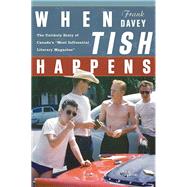
The New copy of this book will include any supplemental materials advertised. Please check the title of the book to determine if it should include any access cards, study guides, lab manuals, CDs, etc.
The Used, Rental and eBook copies of this book are not guaranteed to include any supplemental materials. Typically, only the book itself is included. This is true even if the title states it includes any access cards, study guides, lab manuals, CDs, etc.
That is, I can’t separate in my own mind my attraction to Daphne from the appearance of the Allen anthology, the enormous local interest in Olson’s “Projective Verse,” Duncan’s lectures and the founding ofTish. Without her there would have at least been very few Bowering–Davey twin–poem pages inTish, no Tishbook titledD–Day and After(with its audaciously punning epigraph from Hopkins, “Buckle! AND the fire that breaks from thee then”), no Contact Press book titled “bridge force.” The bridge of that series—prominent in the twin–poems and in those two books— was in part the Lions Gate Bridge over which I had driven to North Vancouver and Daphne’s home, and in part the attempted bridge of my desire. The “bridge force” series had come about through my efforts to follow Duncan’s advice to cease self–expression and instead explore and follow the images that one’s field of experience was proposing, to move from personal plaint toward attention to the objects and histories one lived among.Amongas Fred would write. Without Daphne I might never have felt the need to make that effort. One of the first things I read after that March of 1961, and before the Tallman Sunday meetings began, was Durrell’sJustine, and thenBalthazar,MountoliveandClea. I was on much too familiar ground while reading Justine, and then read Balthazar’s “interlinear” with enormous relief—because it demonstrated that if one could expand what one knew, alternate readings of one’s own life would become possible.MountoliveandCleafurther expanded the quartet’s perspectives and dismantled the initial novel’s romantic claustrophobia. There was a way out, and onward.
So that Hopkins epigraph—which no critic has ever attempted to read—is not perhaps all that outrageous—the “thee” that was the humbled falcon/Christ in Hopkins’s poem could be me, the “fire” could be the poems I contributed toTish, “Buckle” does operate satisfactorily as both a noun and a verb, the line could be speaking of Duncan’s move from “path poem” to “field poem.” It even could be read as a gloss on howJustinewas “buckled” into the splendour, and wisdom, of the full quartet. Interestingly, Hopkins’s “The Windhover” would be a poem that also otherwise haunted theTishpoets. Both Bowering and Dawson would greet people around theTishoffice with a “Hi there, in your riding” or a “Hi there, in your riding of the rolling” or a “Hi there, in your riding of the rolling level underneath you.” I, of course, would never stoop to such puns.